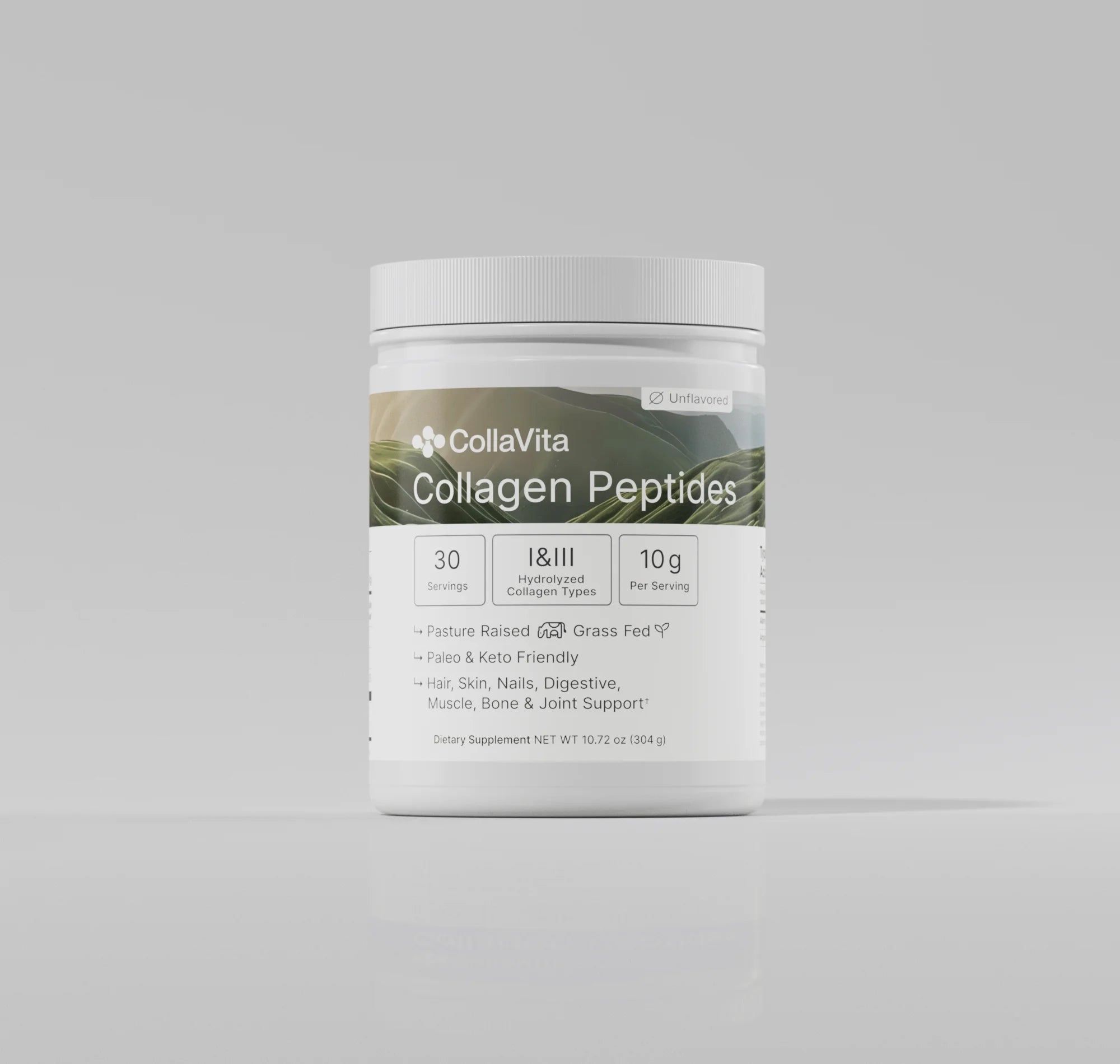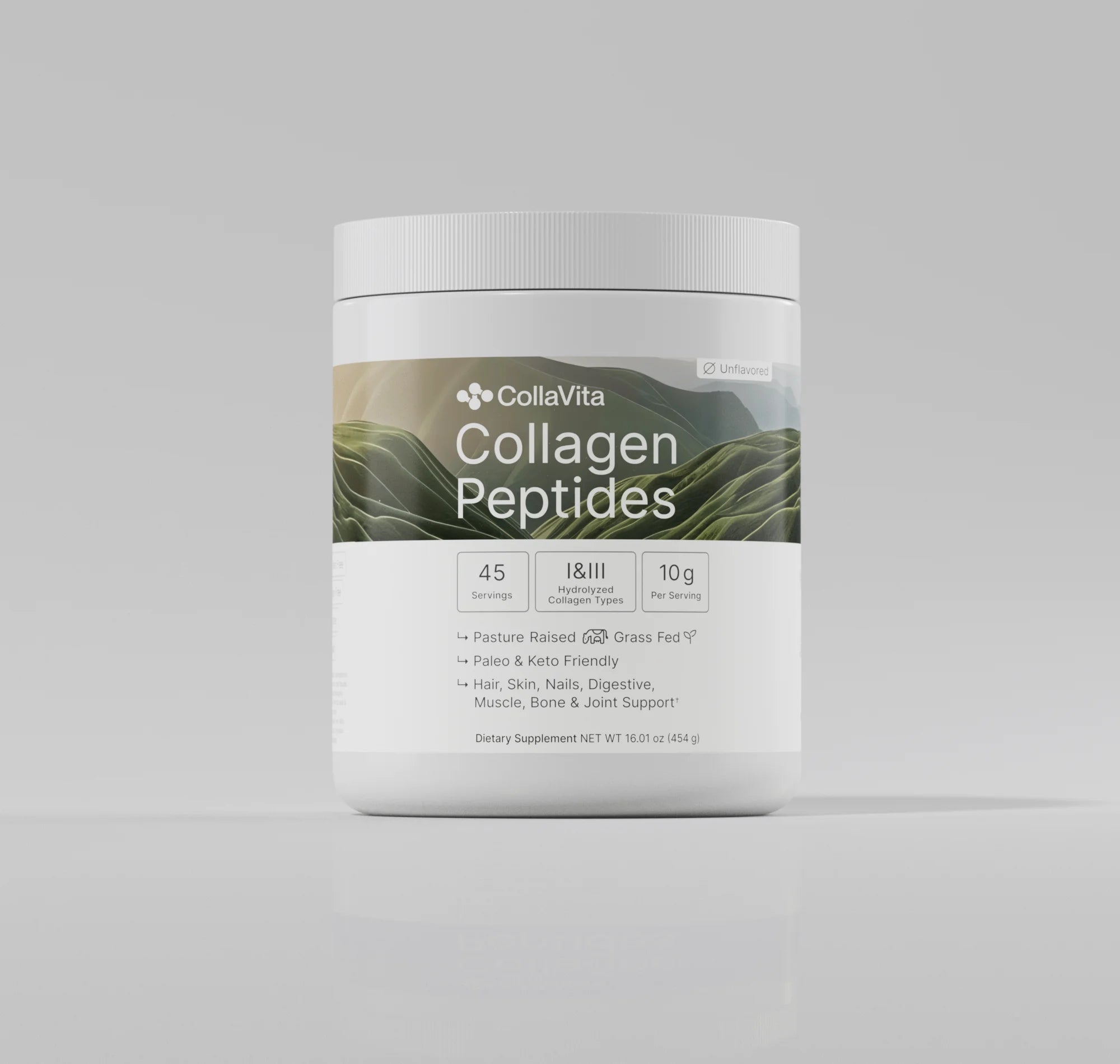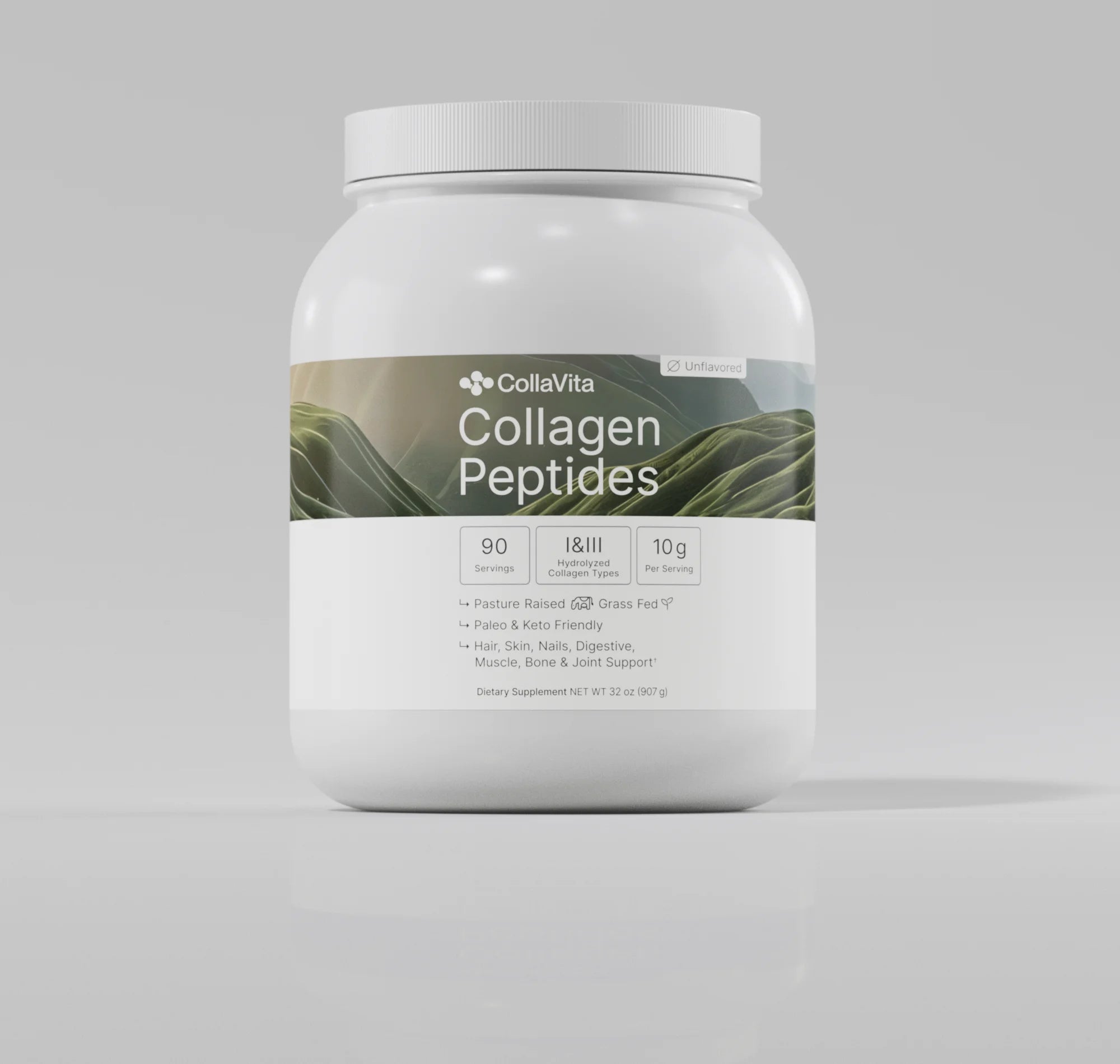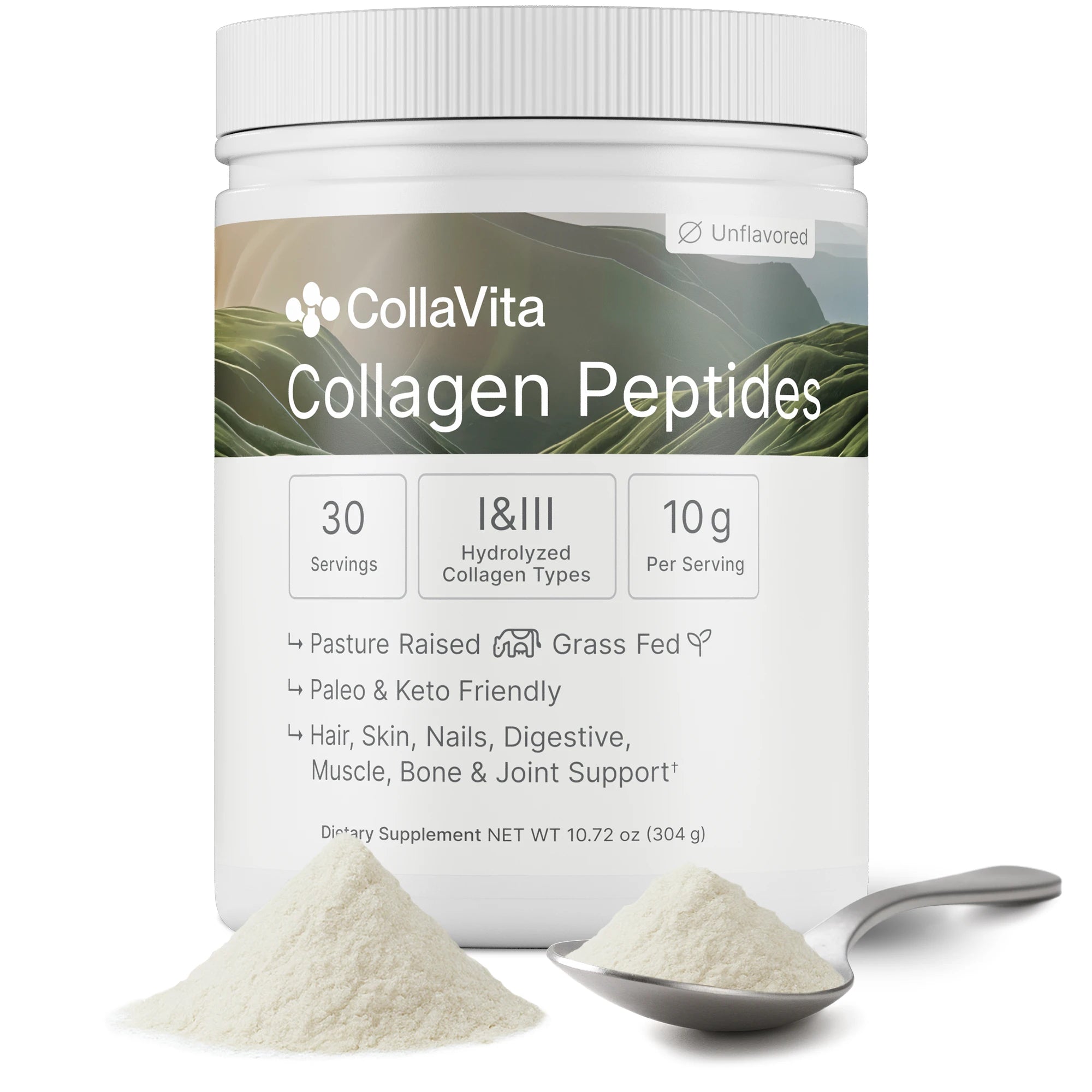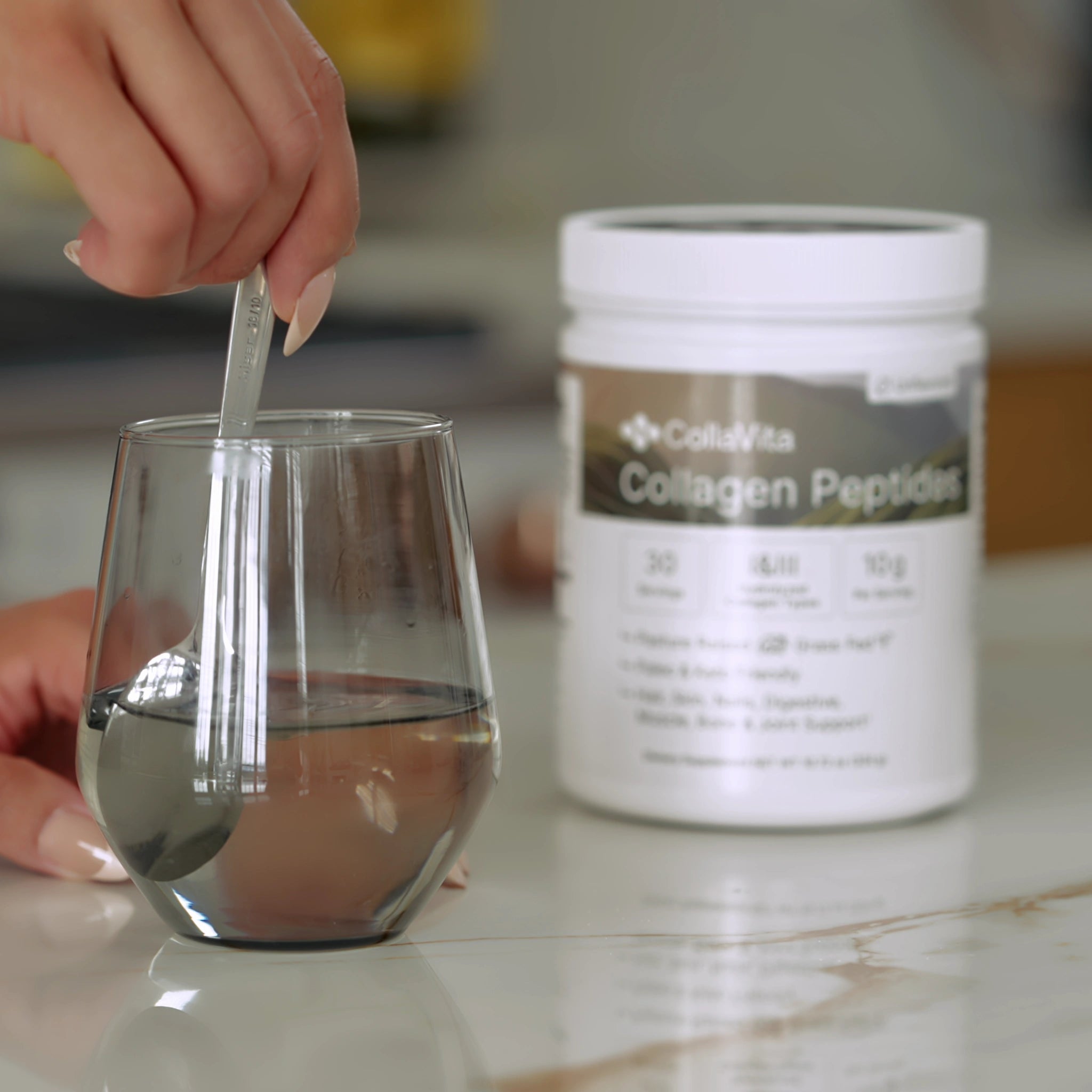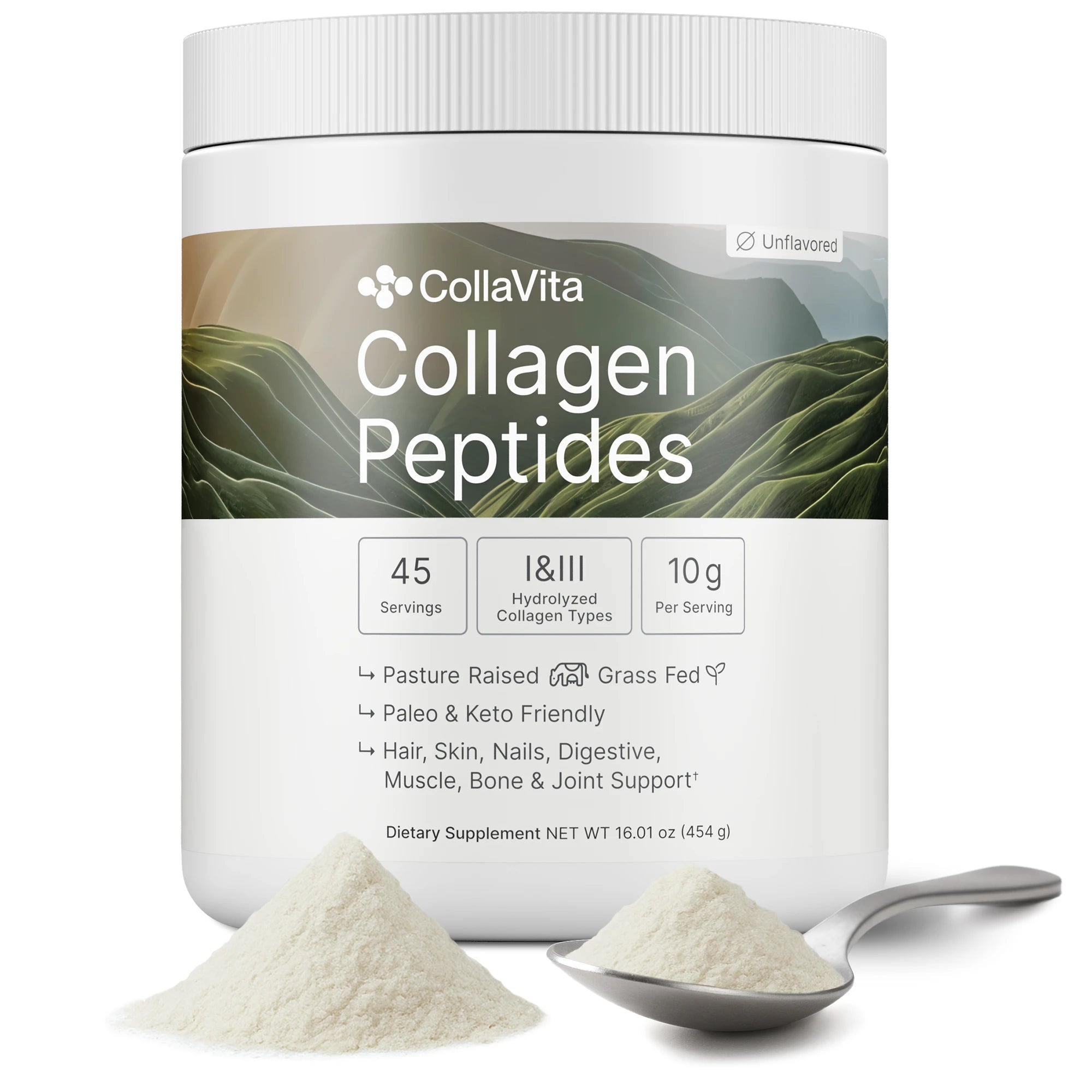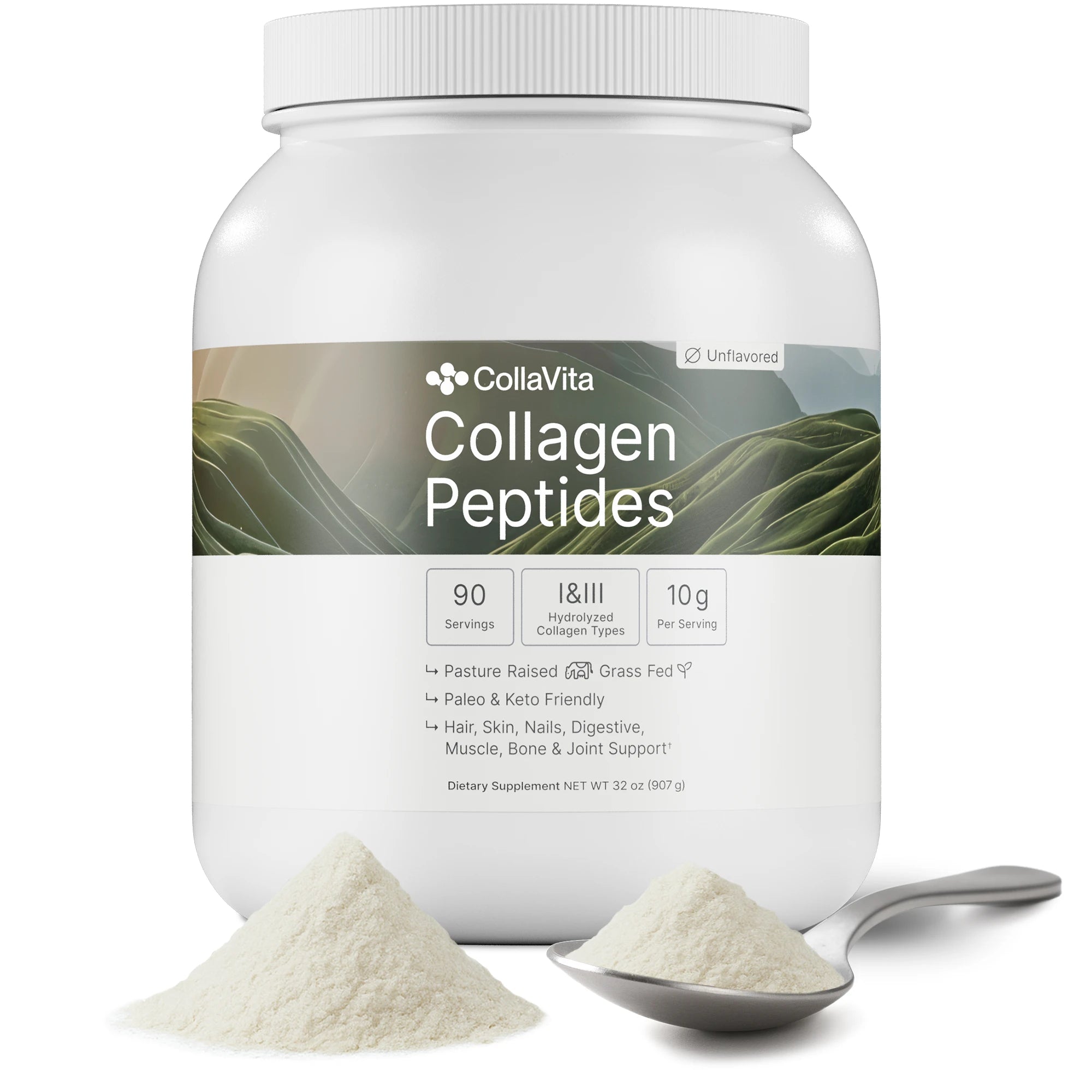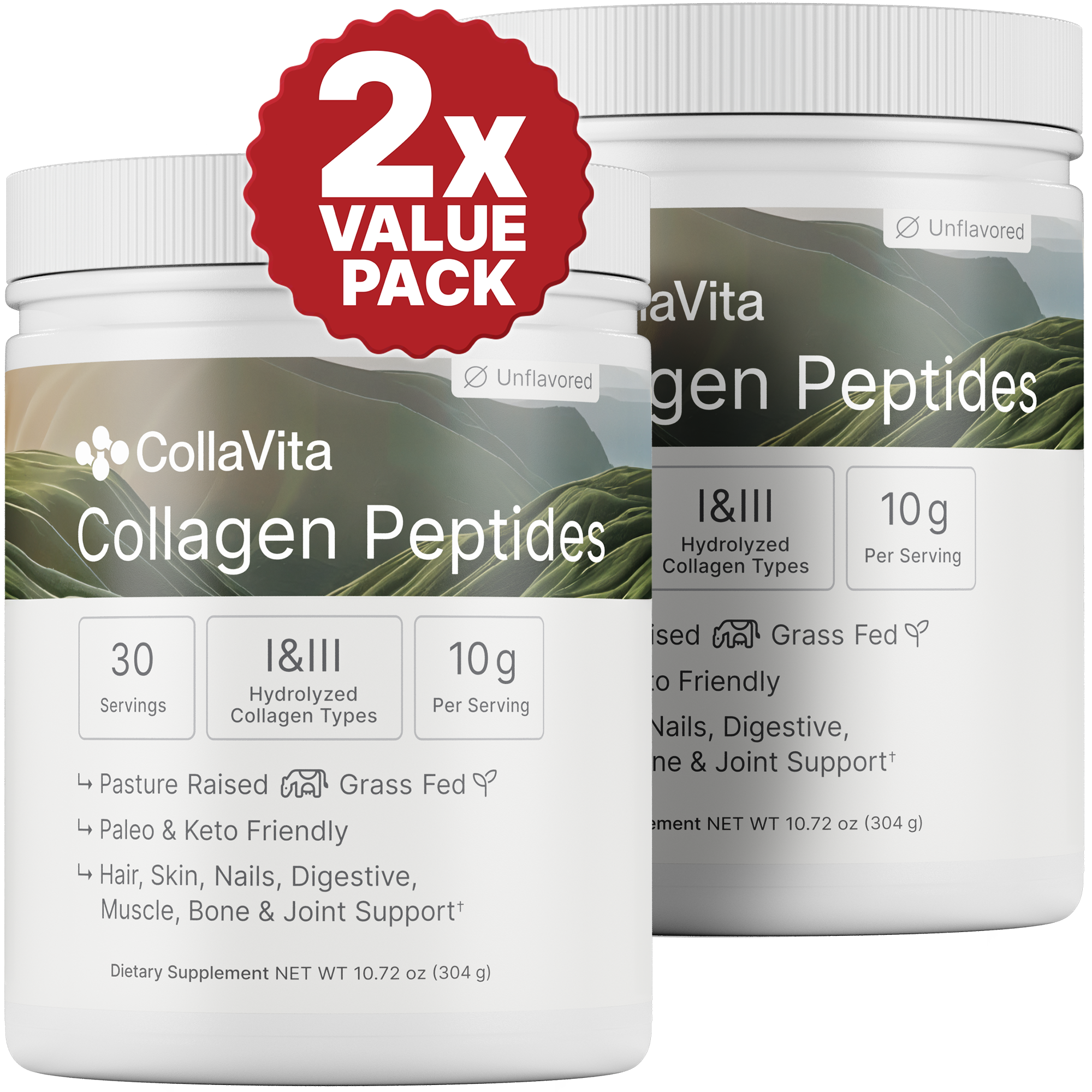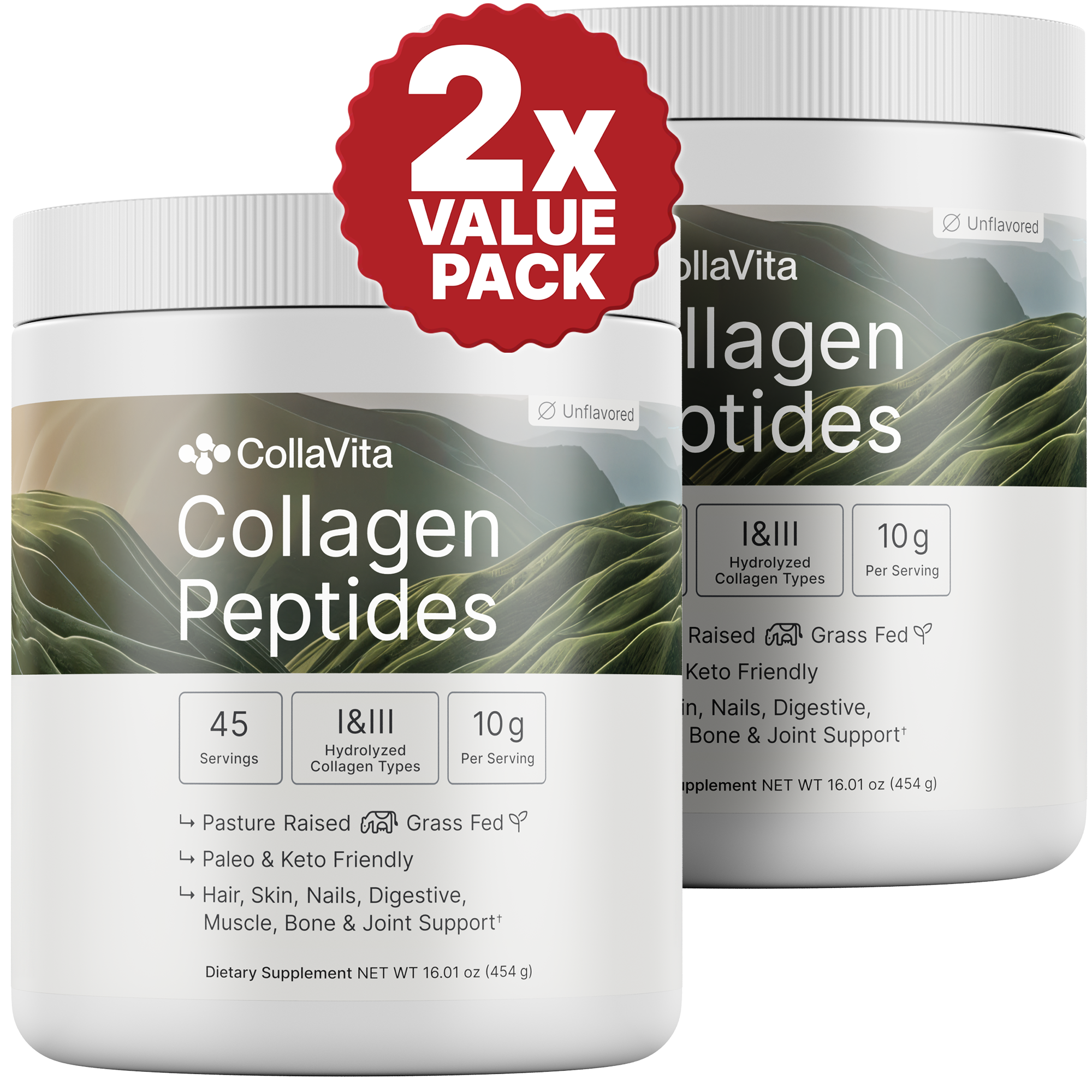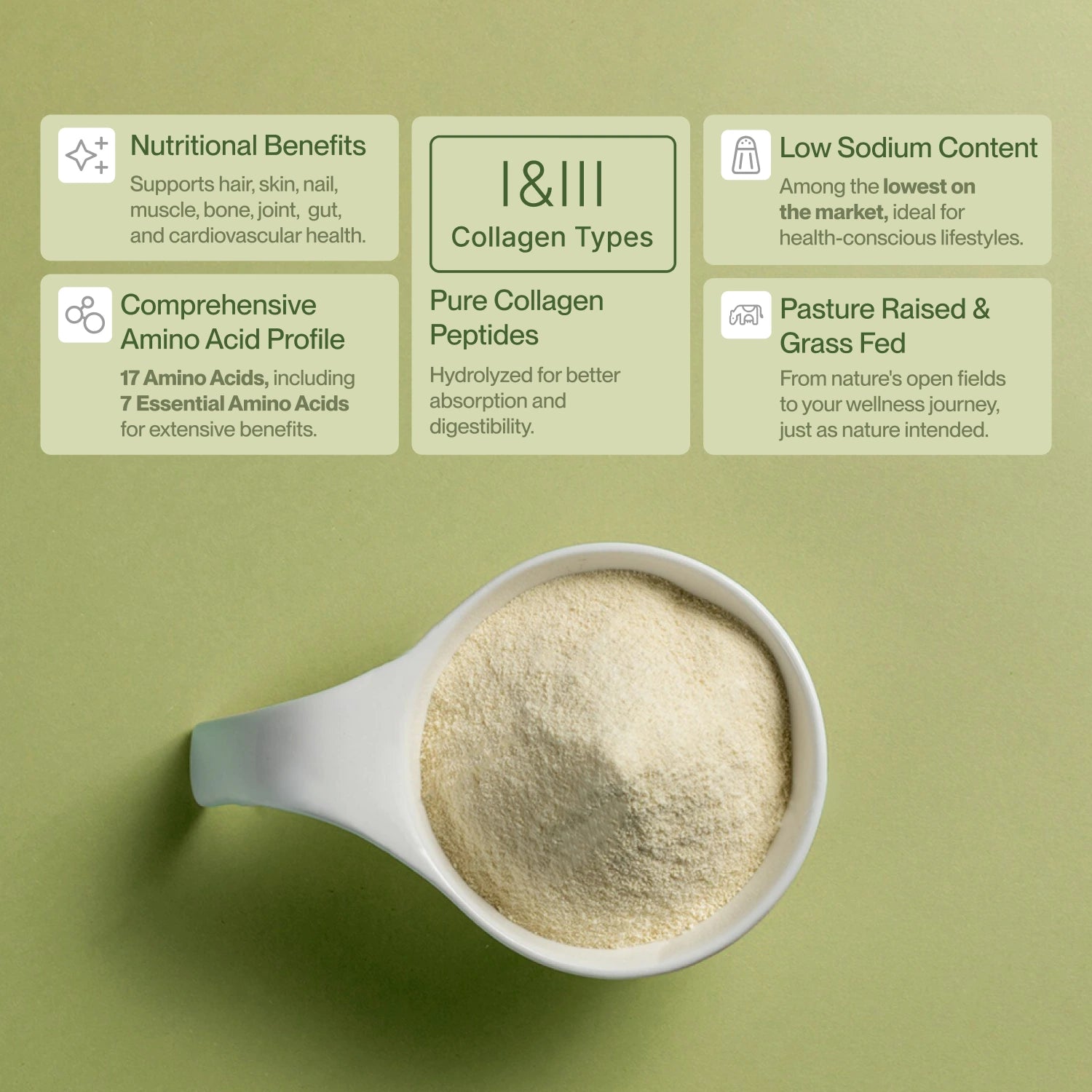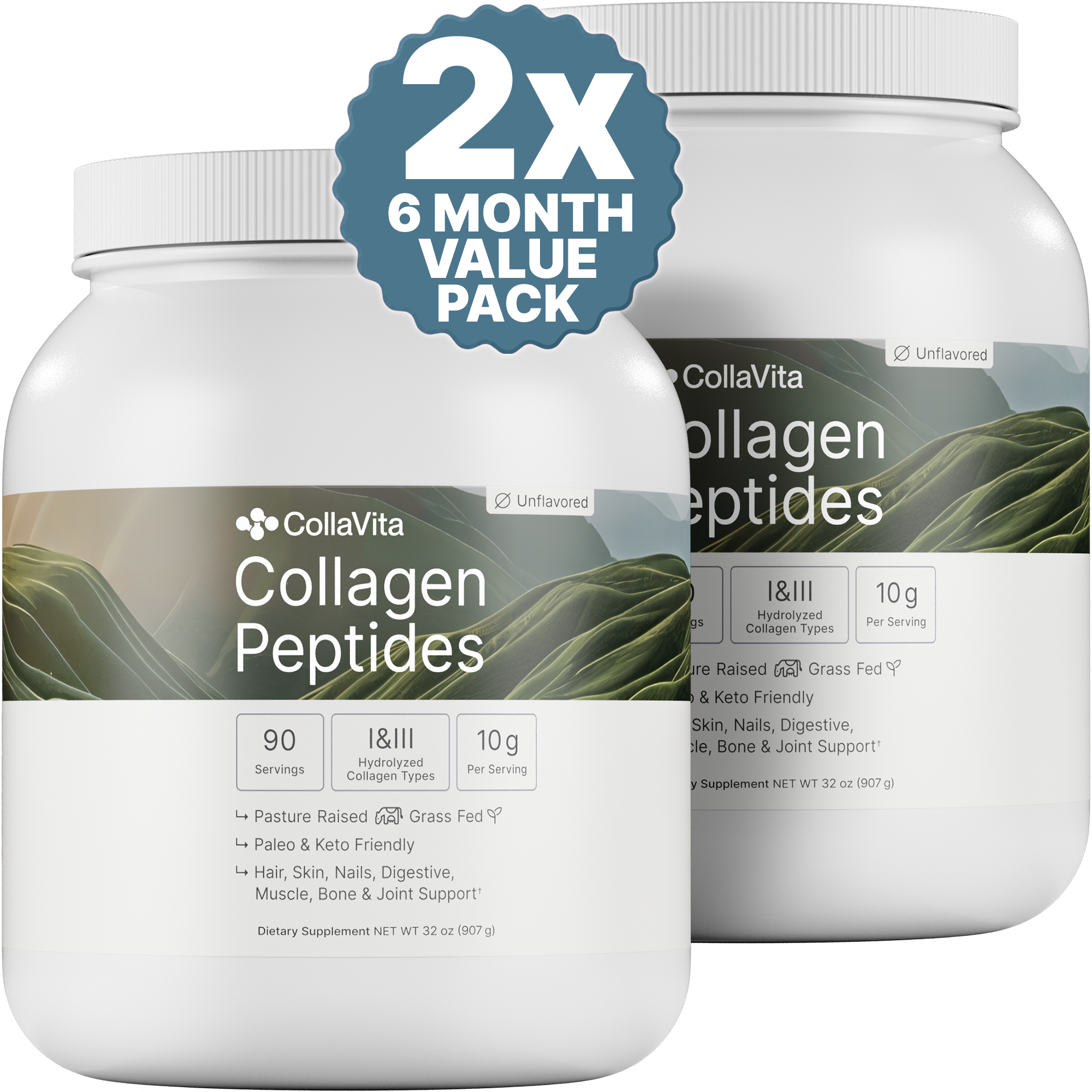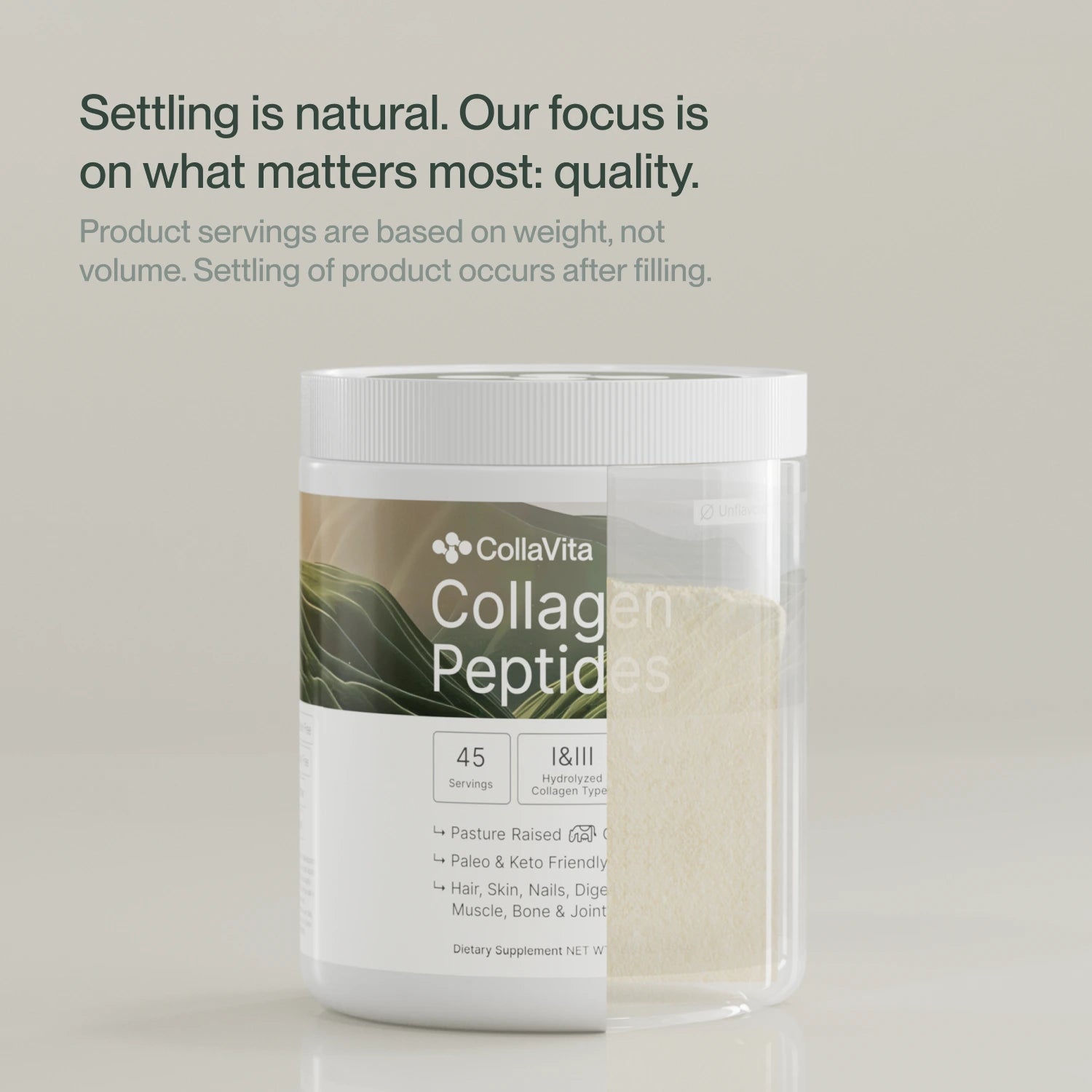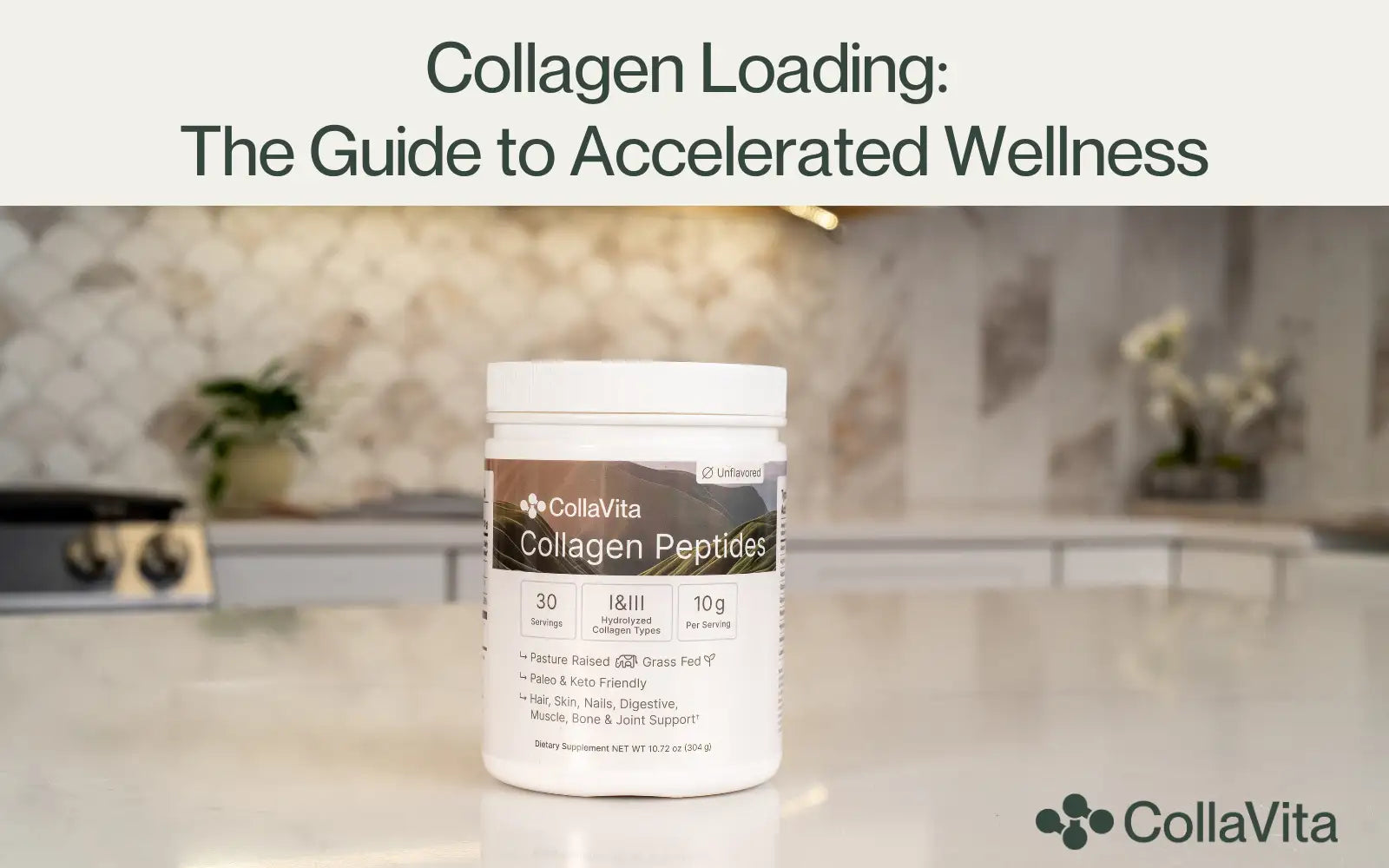What are the Common Symptoms of Collagen Loss During Menopause?
Collagen deficiency can exacerbate various symptoms that affect women's quality of life during menopause:
1.Skin Health: Wrinkles, Sagging, and Dryness
Collagen is a key protein that maintains the skin's plumpness, elasticity, and hydration. The decrease in collagen production during menopause leads to thinning skin, deepening wrinkles, sagging, and dryness. The skin can become more sensitive, and the wound healing process may slow down.
2.Bone and Joint Health: Increased Pain and Fracture Risk
Collagen is an important component of the organic matrix of bones and the fundamental building block of cartilage tissue. The decline in estrogen leads to reduced bone density, and collagen loss accelerates this process. This increases the risk of osteoporosis and can cause pain, stiffness, and swelling in the joints. Some studies suggest that collagen supplements can improve symptoms of osteoarthritis and increase bone mineral density.
3.Hair and Nail Health: Thinning, Brittleness, and Breakage
Hair follicles and nail beds require collagen for healthy growth. Collagen loss during menopause can lead to hair weakening, thinning, breakage, and shedding. Nails can also become more brittle and peel easily.
4.Vaginal Dryness and Loss of Elasticity
With declining estrogen, collagen and elastin in vaginal tissues also decrease. This can cause vaginal dryness, loss of elasticity, and discomfort during intercourse. While more research is needed on the potential benefits of collagen supplements in this area, considering its general role in supporting tissue health, it is thought that it may have positive effects on these symptoms as well.
Collagen for Women Over 50: A Broader Perspective
While this article focuses specifically on menopause, the benefits of collagen extend to women over 50 in general, addressing various age-related concerns beyond just menopausal symptoms. For a more comprehensive understanding of how collagen can support overall health and vitality in this age group, we invite you to read our detailed article: Collagen for Women Over 50.
How Do Collagen Supplements Help in Menopause?
Collagen supplements help support women during menopause by replenishing the body’s declining collagen levels, which naturally drop due to hormonal changes. This can improve skin elasticity and hydration, reduce the appearance of wrinkles, and promote joint flexibility. Additionally, collagen contributes to maintaining bone strength and muscle mass, helping counteract the loss of bone density and firmness often experienced after menopause. For instance, specific collagen peptides have been shown to improve bone mineral density and bone formation markers in postmenopausal women (König et al., 2018)
(1).
Recent evidence suggests that
collagen supplementation may support musculoskeletal health during menopause, a period marked by accelerated bone and muscle loss. According to a 2025 systematic review published in
Orthopedic Reviews
(2),
type I collagen hydrolysate has shown potential benefits for
joint function, mobility, and pain reduction, while also contributing to
bone health maintenance in postmenopausal women. However, the review notes that while results are promising,
more large-scale and long-term studies are needed to confirm the effects on bone density and muscle strength.
Overall, collagen supplements, especially when combined with regular exercise and adequate nutrition, may help mitigate age- and menopause-related declines in bone, joint, and muscle health.
How to Choose the Right Collagen Supplement?
When choosing a collagen supplement, it is important to be careful to ensure its effectiveness and safety:
Which Type of Collagen? (Type 1, 2, & 3)
For skin, hair, nail, and bone health, Type 1 and Type 3 collagen are generally recommended. Type 2 collagen, on the other hand, focuses more on joint and cartilage health. Most supplements offer a combination of these collagen types to provide broader support for overall wellness.
The Importance of Hydrolyzed Peptide Form
Collagen molecules in their natural state are quite large and cannot be effectively absorbed by the body. Hydrolyzed collagen (collagen peptides) is obtained by breaking down these large molecules into smaller, highly bioavailable peptides. This form allows the body to absorb and utilize collagen more easily.
Ingredient Quality and Additional Vitamins
The quality of your supplement can also be enhanced by its additional ingredients. Vitamin C is vital for the body's own collagen production. Other ingredients like hyaluronic acid and biotin can also support skin, hair, and nail health. Choosing a
collagen with hyaluronic acid supplement can provide synergistic benefits, improving skin hydration, elasticity, and overall appearance. It is important to choose products from reputable brands that are transparent about their ingredients and have undergone third-party testing for quality and safety.
Can Collagen Supplements Help with Arthritis?
Collagen supplements help arthritis by supporting joint health, providing the building blocks for cartilage repair, and reducing inflammation in the joints. In particular, collagen for arthritis often focuses on Type 2 collagen, which may improve joint flexibility, reduce pain, and enhance overall mobility, making it a beneficial option for those managing arthritis symptoms.
SOURCES
(1) - König, D.; Oesser, S.; Scharla, S.; Zdzieblik, D.; Gollhofer, A. Specific Collagen Peptides Improve Bone Mineral Density and Bone Markers in Postmenopausal Women-A Randomized Controlled Study. Nutrients 2018, 10, 97
(2) - Brueckheimer PJ, Costa Silva T, Rodrigues L, Zague V, Isaia Filho C. The Effects of Type I Collagen Hydrolysate Supplementation on Bones, Muscles, and Joints: A Systematic Review. Orthop Rev (Pavia). 2025 Feb 19;17:129086. doi: 10.52965/001c.129086. PMID: 39980497; PMCID: PMC11842160.



